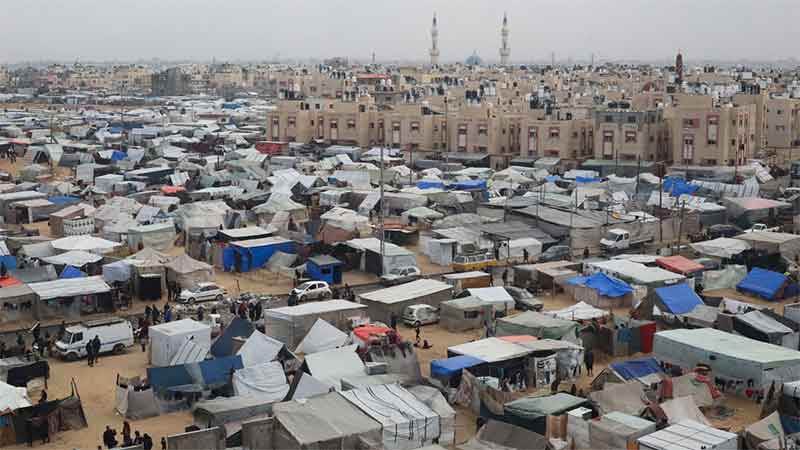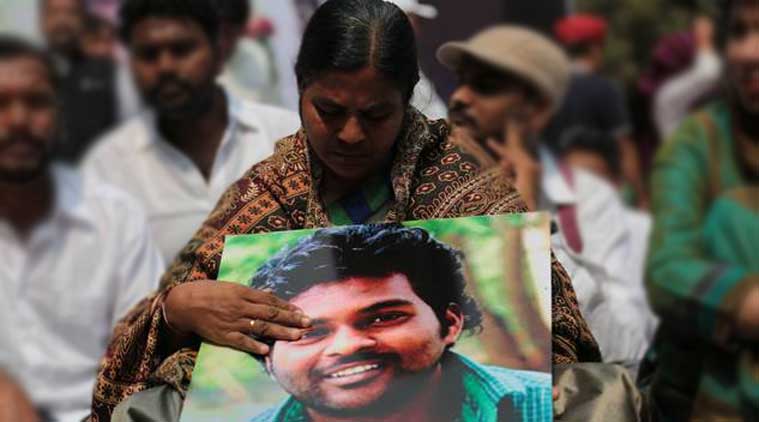
A climate summit is going to begin. Ahead of the summit, the World Meteorological Organization released a report on April 19, 2021, which has warned: Time is fast running out.
The report – State of the Global Climate 2020 – finds that concentrations of greenhouse gases (GHG) continued to climb in 2020, despite lockdowns imposed to slow the present pandemic.
António Guterres, the UN Secretary-General, said in the foreword to the report: “[T]ime is fast running out to meet the goals of the Paris Agreement. We need to do more, and faster, now.”
In an interview with Reuters, Guterres was even more direct: “We are on the verge of the abyss.”
In 2019, according to the UN report, GHG concentrations reached new highs:
- Carbon dioxide: 410.5±0.2 ppm = 148% of preindustrial levels
- Methane: 1877±2 ppb = 260% of preindustrial levels
- Nitrous oxide: 332.0±0.1 ppb = 123% of pre-industrial levels.
The report said: In 2020, global mean surface temperature (GMST), measured using a combination of air temperature two meters over land, and sea surface temperature in ocean areas from various databases, was 1.2 ± 0.1 °C warmer than the pre-industrial baseline (1850-1900), Despite developing La Niña cooling conditions, 2020 was one of the three warmest years on record, and the last decade, 2011-2020, was the warmest on record.
The report said:
- “Since the mid-1980s, Arctic surface air temperatures have warmed at least twice as fast as the global average, while sea ice, the Greenland ice sheet and glaciers have declined over the same period and permafrost temperatures have increased.
- “This has potentially large implications not only for Arctic population, infrastructure and ecosystems, but also for the global climate through various feedbacks.”
- “Around the world”, the report said, “[r]ising global temperatures have contributed to more frequent and severe extreme weather events […].”
Extremes
As example of extreme weather incidents, the report mentioned extreme precipitation in 2020, and said:
“Regions with unusually high precipitation amounts […] included East and North-East Africa, South and East Asia, south-eastern North America and the Caribbean and North-East Europe.
“Unusually low precipitation amounts were observed in Southern and North-West Africa, South America, North-East and West Asia, south-western and north-eastern North America and northern New Zealand.”
Ocean warming
Oceans are “the destination” of around 90% of the excess energy that accumulates in the earth system due to increasing concentrations of the GHG. Ocean Heat Content (OHC), a measure of this heat accumulation in the Earth system, is measured at various ocean depths, up to 2000m deep. Ocean warming rates, according to the report, “show a particularly strong increase in the past two decades across all depths.”
The report said:
- “In 2019, the 0–2000m depth layer of the global ocean reached a new record high, and a preliminary analysis based on three global data sets suggests that 2020 exceeded that record.”
- “In 2020, more than 80% of the ocean experienced at least one MHW, causing significant impacts to marine life and the communities that depend on it.”
- “Globally, sea level has been rising an average of 3.29 (+/- 0.3) mm per year, peaking in 2020. A small decrease in the latter part of 2020 is likely related to La Niña conditions in the tropical Pacific.”
Glacial loss
On glacial loss, the report said:
- “[G]laciers continued to lose mass in the hydrological year 2019/2020.”
- “Although, mass balance was slightly less negative, with an estimated ice loss of 0.98 meter water equivalent, there is a clear trend towards accelerating glacier mass loss in the long term.”
- “Eight out of the ten most negative mass balance years have been recorded since 2010.”
Sea ice
On sea ice, a useful indicator of climate change particularly given the speed of change occurs at the poles and the extent of the repercussions of its cover, the report said:
- “Antarctic sea ice remained close to the long-term average”.
- “In the Arctic, the annual minimum sea-ice extent was the second lowest on record and record low sea-ice extents were observed in the months of July and October 2020.”
- “Oceans absorb around 23% of the annual emissions of anthropogenic CO2 to the atmosphere, helping to alleviate the impacts of climate change but at a high ecological cost to the ocean.”
It said: “Global mean ocean pH has been steadily declining”.
The report said that increasing global warming are risking achieving of the Sustainable Development Goals (SDG).
Displacement of people
It said:
- “Over the past decade (2010–2019), weather-related events triggered an estimated 23.1 million displacements of people on average each year.”
- “Approximately 9.8 million displacements, largely due to hydrometeorological hazards and disasters, were recorded during the first half of 2020, mainly concentrated in South and South-East Asia and the Horn of Africa.”
- “Events in the second half of the year, including displacements linked to flooding across the Sahel region, the active Atlantic hurricane season and typhoon impacts in South-East Asia, are expected to bring the total for 2020 close to the average for the decade.”
Food insecurity
Food insecurity, the report said, grows out of climate variability and extreme weather incidents, along with economic slowdown and conflicts. It said:
- “In 2020, over 50 million people were doubly hit – by climate-related disasters (floods, droughts and storms) and by the COVID-19 pandemic.”
- “Nearly 690 million people, or 9% of the world population, were undernourished, and about 750 million, or nearly 10%, were exposed to severe levels of food insecurity in 2019.”
The UN report warned: “Overall in 2020, the world remained on course to exceed the agreed temperature thresholds of either 1.5 °C or 2 °C above pre-industrial levels, which will increase the risk of experiencing the pervasive effects of climate change beyond what is already seen. Thus while reducing greenhouse gas emissions remains essential, scaling up adaptation is an urgent need.” The report has suggested massive effort from the governments of the world.
The report is a burning example of the world capitalist order – everything for profit, demolish and destroy for profit, nothing to consider, but profit. The order itself is destructive, and ultimately, catastrophic. It’s not that capitalism has turned catastrophic in recent time. Since its rise, the system is catastrophic. It created catastrophe proportionate to its power, which is the more it expanded the more its catastrophic power increased and wider catastrophe it created. Therefore, there’s no need to identify it as catastrophic. Moreover, identifying the destructive system as catastrophic can create confusion by raising an alternate-question: Is there some sort of capitalism, which is non-catastrophic? And was there any phase of the system, when it was not acting catastrophic? Never and never was it. Its catastrophic power is not limited only within the production system, the system that exploits labor and nature. Its military machine itself is destructive also. It not only brings deaths to people, demolishes people’s lives and habitats. It also brings catastrophe to nature, environment and ecology, which ultimately “contributes” to global warming. The politics it carries on is also catastrophic. This catastrophic nature of its politics is not a recent development. It was always catastrophic. The policies it pursued, the power it exerted, the classes that gained with this politics are catastrophic since its inception; and these “contribute” to pushing global temperature to life-threatening level.
The UN report is also a burning example of people’s suffering around the world. The first to suffer, and the most to suffer due to the climate crisis is the people, especially the poor – the vast number of poor farmers, poor fishers, mangrove forest-dependents, the small occupational groups including artisans, workers. With rising food insecurity, the poor, the low-income group suffer first, and suffer most. With rising food insecurity, their suffering increases. With displacement, the poor turn poorer, destitute, jobless, and immerse into uncertainty.
Thus, the climate crisis created by the capitalist order is actually a war against people; and in real sense, it’s part of a class war waged by capital/capitalist against the exploited people.
World Bank’s changed tone
However, interesting developments are there. The powerful World Bank (WB) has changed its tone on climate issue. The following report by The New York Times, said the WB’s changed tone, one of the interesting developments:
At the annual spring meetings of the IMF and the World Bank, David Malpass, the World Bank president, described climate change as an “immense” issue for the globe. He talked about the need to transition away from coal. Malpass was having conversation with US Treasury Secretary Janet L. Yellen and Kristalina Georgieva, the head of the IMF. (“Out of Trump’s shadow, World Bank president embraces climate fight”, April 9, 2021)
Such a comment from Malpass, the report said, “who was selected for the job by former President Donald J. Trump, would have been startling just a year or two ago. […] Malpass has refashioned himself as an environmentalist, giving speeches about ‘green growth’ and a net-zero carbon future.”
“The transformation”, the report added, “reflects the changing political winds in Washington — one that could have important consequences […]”
The report told in an interesting way: “Coming from an administration that did not believe the science behind climate change put Malpass in an awkward position. While seeking support from World Bank donor countries for the role, he said he would maintain the bank’s climate commitments, but he treaded carefully when discussing the causes of global warming. In public comments early in the job, Malpass focused on the global economy and debt transparency, frustrating the bank’s climate experts, who thought he was overlooking the environment, people familiar with the matter said.”
With a sarcastic tone, it said:
“[…] Malpass has changed his tone.”
“These days, he tends to pepper his speeches and conversations with bank officials with concern about the environment. [….] And now that the United States, the World Bank’s largest donor, is rolling out more plans to curb emissions and assess climate change’s risks to the financial system, Malpass must ensure that the bank is keeping pace.”
The report broke the mystery of Malpass’ change of tone as it quoted Rachel Kyte, the WB’s former vice president and special envoy for climate change: “The Biden administration has made it clear they expect the World Bank to be helpful and leading, and the largest shareholders of the World Bank are all politically aligned and need the bank to be playing a leadership role. The world doesn’t need Malpass to be Bono or Jim Kim on climate,” referring to the activist rock star and Malpass’s predecessor.
It’s not only the WB-chief’s change of tone. Ms. Kyte said, according to the report, in recent years, other multinational development banks had shown more ambition than the WB on climate policy.
And, the WB recently presented its Climate Change Action Plan that pledges 35 percent of World Bank financing to have climate co-benefits over the next five years, and that 50 percent of WB climate financing will support “adaptation and resilience.” The bank also committed to fully aligning its financing objectives with the 2015 Paris climate agreement by 2023. The WB is also planning to work with developing countries on debt relief initiatives that would encourage them to shift away from fossil fuels, Malpass informed.
Malpass, according to the NYT report, “in a speech last month about ‘building a green, resilient and inclusive recovery,’ said his team was integrating climate into all of the bank’s country strategies and would complete climate and development reports for 25 countries this year.”
It’s not only the WB and other multinational donors, an interesting part of private capital, and capital engaged with exploiting fossil fuel is having a changed approach – investing in climate-“saving”/”green”/renewable projects, researches, etc. Has the part of the capital turned climate-aware? Has the climate crisis-deniers failed? Not at all. It’s that “simple” anthem of private capital: Profit, maximization of profit. The “aware” group calculates climate crisis will ultimately hurt its profit that is being made from the “crisis-market”; and on the opposite, a promising market of renewable, etc. is coming up; let’s enter there with a nice appearance.
To this part of capital “aware” of climate crisis, the source of the crisis – capitalist system – isn’t the problem. To the part, climate crisis is a commodity connecting many, as other commodities connect. It’ll try its best to reap a higher profit from the emerging market. It’s aware of this emerging market. To reap profit, it’ll keep the profit-making system intact. So, the source of the crisis will continue hurting people as it hurts today, as it hurt yesterday, because, profit can’t be made without exploiting labor and nature.
Note: This article is an expanded version of the original (“Ahead of climate summit, U.N. says the world is “on the verge of the abyss”).
Farooque Chowdhury writes from Dhaka, Bangladesh
GET COUNTERCURRENTS DAILY NEWSLETTER STRAIGHT TO YOUR INBOX












































